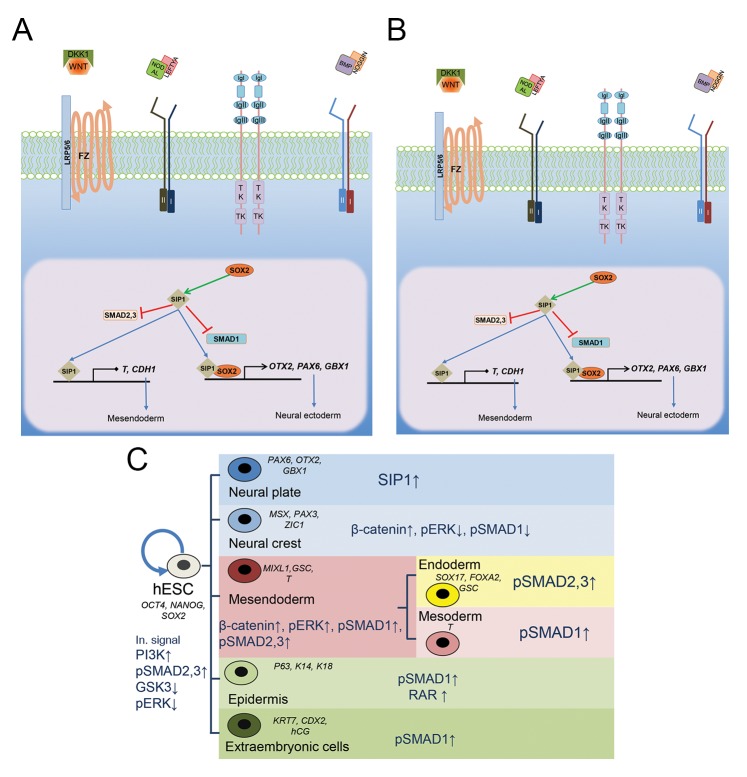Fig.2.
Neural ectoderm and neural crest specification in deprivation of the external signals.
A. In the lack of external Activin/Nodal and ERK signals, the expression of NANOG decreases in favor of SOX2 expression. SOX2 expression, in turn, activates SMAD interacting protein 1 (SIP1) which blocks mesendoderm differentiation and actively promotes expression of neuroectoderm specific genes - PAX6, OTX2 and GBX1, B. Neural crest (NC) determination occurs in two distinct steps that consist of neural plate border (NPB) and NC specification. NC specification occurs when the WNT molecule binds to its receptor Frizzled (FZ) and interacts with co-receptor LRP5/6, then these interactions can stabilizes β-ctnn by the canonical pathway. Activation of ERK by its phosphorylation downstream of the fibroblast growth factor (FGF) signals also contributes to glycogen synthase kinase-3 (GSK3) inhibition and indirectly assists with neural plate border determination by boosting the expression of the MSX1, PAX3, PAX7 and ZIC1 genes. Also, Leucine-rich repeats and immunoglobulin-like domains 3 (Lrig3) indirectly inhibit ERK activation is required for induction of the neural plate border. BMP signals cooperativly contribute to specify the NPB cells towards functional migratory NC cells by inducing expressions of the SNAIL1, SOX9 and FOXD3 genes, and C. Summarizing intracellular signals required for self-renewal and maintenance of hPSCs and its early differentiation. The major intracellular signals for hPSCs self-renewal and other differentiated progenies are depicted. High and low arrows indicate the amount of each signal inside the cells. Important transcribed genes are also shown for each step. For example, in the epidermis, the level of expression and phosphorylation of SMAD1 is high. This type of cell expresses the retinoic acid receptor (RAR), marked by p63, cytokeratin14 and cytokeratin18 gene expressions.

